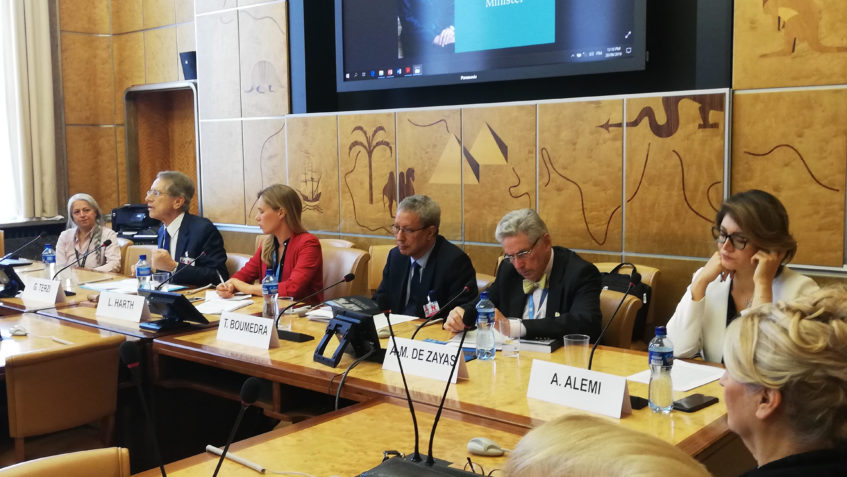Thursday September 19, during its plenary session in Strasbourg, an overwhelming majority of the European Parliament adopted a resolution condemning the continuing human rights violations in Iran. With 608 votes in favour, 7 against, and 46 abstentions, the European Parliament calls on the Iranian authorities to unconditionally release all arbitrarily jailed women’s rights defenders protesting against the hijab being compulsory, as well as all other human rights defenders, imprisoned and sentenced for simply exercising their right to freedom of expression, association and peaceful assembly. It praises and supports the Iranian women human rights defenders who continue to stand up for their causes, despite the difficulties and personal repercussions they are facing.
MEPs also demand that all EU-Iranian dual nationals, including Nazanin Zaghari-Ratcliffe (British), Ahmadreza Djalali (Swedish) and Kamran Ghaderi (Austrian), currently detained in Iranian prisons be immediately released, unless they are retried according to international standards. The resolution urges the Iranian authorities to cooperate without further ado with EU member states’ embassies in Tehran in order to establish a comprehensive list of EU-Iranian dual nationals currently detained in the country, and to closely monitor each individual case.
The Resolution comes a few days ahead of the opening of the United Nations General Assembly in New York, during which a possible meeting between US President Trump and Iranian President Rouhani is still pending, following the latest opening offered to the Iranian regime by French President Macron during the G7 summit in Biarritz. During the broadcast Diritto alla Conoscenza curated by Laura Harth on Radio Radicale, the President of the Global Committee for the Rule of Law “Marco Pannella” Giulio Terzi di Sant’Agata pointed out how this decision of the European Parliament must in fact serve as a strong signal to European governments in taking their positions vis-à-vis the Iranian regime during this AG’s session. In particular, he expressly asked Italian Prime Minister Giuseppe Conte and Minister of Foreign Affairs Luigi Di Maio to take stock of this unequivocally strong position by the highest democratic institution of the European Union on the continuing violations of the UN’s founding principles by Tehran. Too often still the EU’s national Governments and other EU institutions tend to maintain a policy of appeasement towards the Ayatollah’s regime, putting at risk not only the rights and lives of millions of Iranians, but stability throughout the Middle East and even the life and freedoms of citizens in the West, against Teheran acts with increasing arrogance.
Friday 20 September, Ambassador Terzi expressed the same concepts during a parallel event organized by the Nonviolent Radical Party at the UN Human Rights Council in Geneva.Together with Tahar Boumedra, former Director of the Human Rights Office of the United Nations Assistance Mission in Iraq (UNAMI), and Alfred-Maurice de Zayas, former UN Independent Expert for a Democratic and Equitable International Order, he reiterated the urgency and importance of an independent inquiry commission in the crimes committed by the Iranian regime in 1988, when at least 30.000 opposition members were brutally massacred by the regime; a massacre on which the victims and their families still await the truth – as is their right sanctioned by the UN -, while the authors continue unpunished to be rewarded for having committed them.
In particular, Tahar Boumedra revealed how even the highest UN bodies – bound to independence and to the principles and objectives of the UN’s founding charter -, like former UN Secretary General Ban Ki Moon, have and continue to press their own officials and independent experts to keep requests for the truth to emerge under wraps in order to “develop friendly relations with national governments”. Once again, it is clear that the raison d’état is returning to full force within the United Nations. It may be useful to remember that such policies – between realpolitik, appeasement and sovereign state reason – have never brought peace in the pas and have been the declared failure of the UN’s very predecessor. The Global Committee for the Rule of Law will continue to call and press for the full affirmation of the rule of law, against any raison d’état countering it, and to support anyone – inside or outside the institutions – who denounces the violation and repression of fundamental human rights.
Laura Harth

